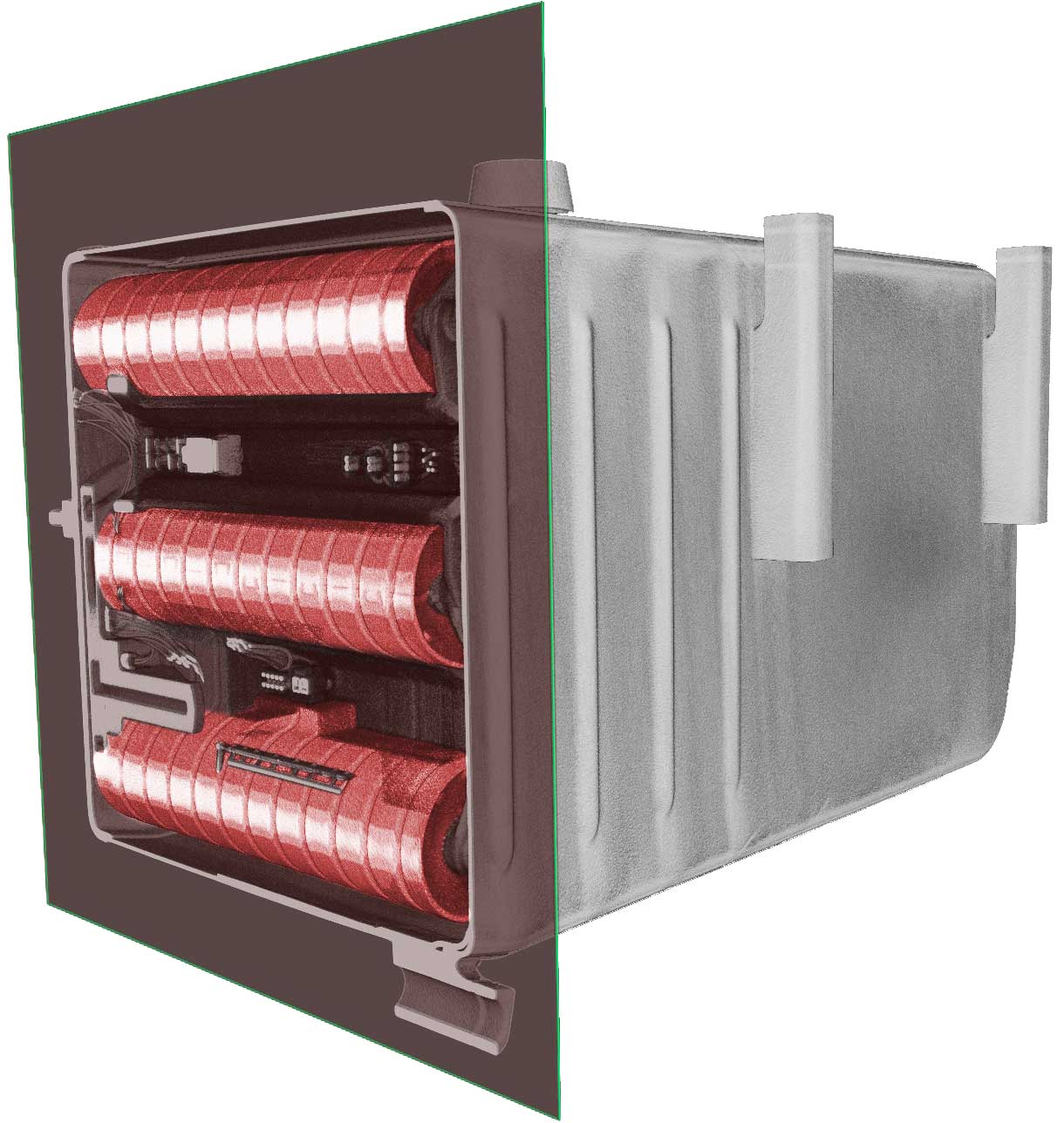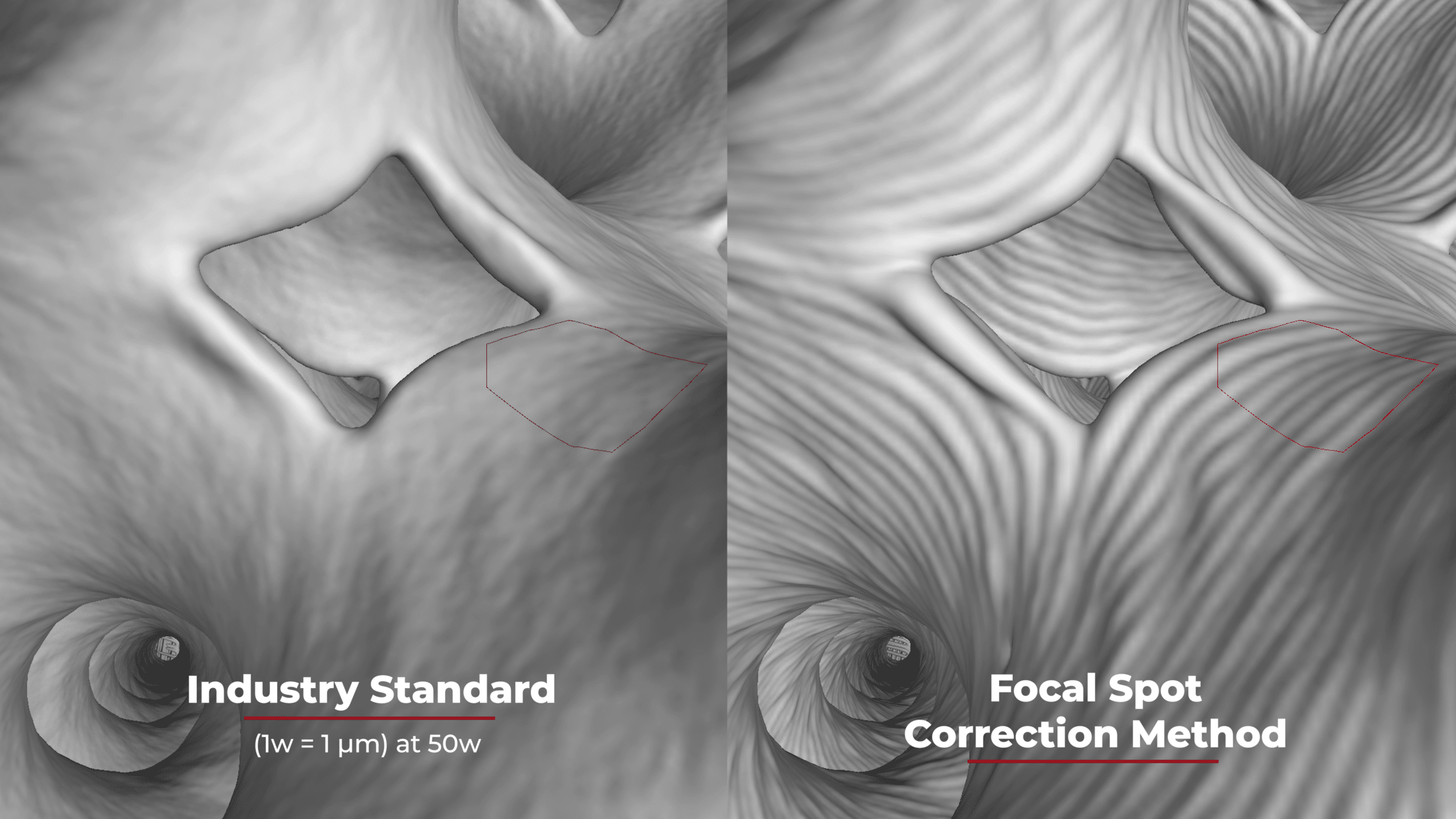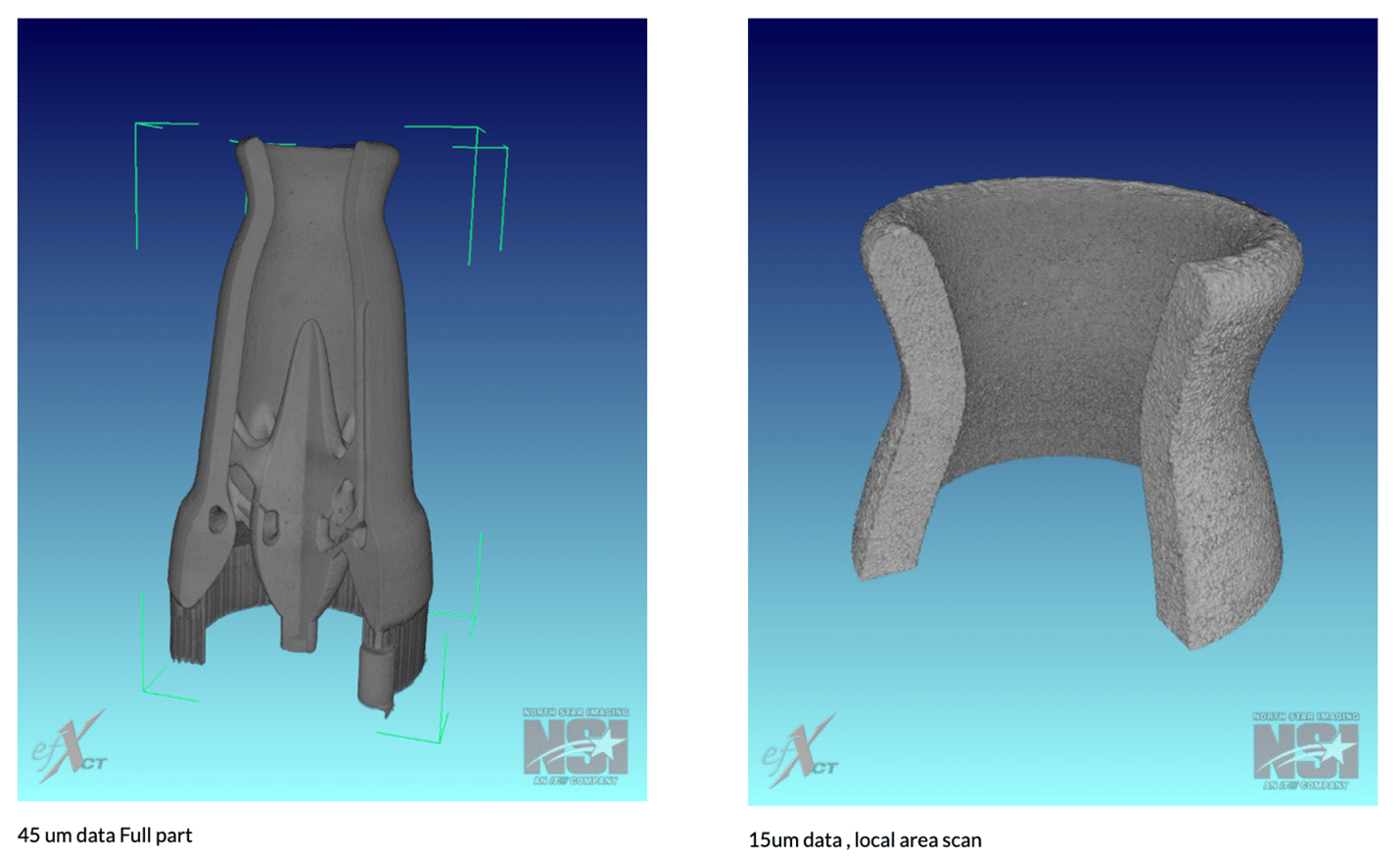FAQs About our CT Scanning Services
We provide various industrial CT scanning services for customers carrying out 2D digital radiography, and 3D computed tomography. Our team is dedicated to designing innovative, high-performing systems that can be used in various applications and industries.
We receive many questions about our products and services from clients and potential clients worldwide. Therefore, this article will provide answers to some of our most frequently asked questions (FAQs).
Can I Scan my Part?
To assess whether your parts are suitable for scanning, there are a few characteristics we need to take into consideration. It is essential to understand that the part’s size and the material will impact how it can be scanned and with what instruments. We have systems that can be installed in a small lab or environments as large as a walk-in vaults to ensure parts of all shapes and sizes can be accurately scanned.
What are the Applications of CT?
Computed tomography CT scanning is used in many industries and a wide range of applications. A CT scanner can take cross-sectional images of materials such as alloys and plastics but is also frequently used in medical applications to identify bone breaks and fractures. However, industrial CT scanning excludes hospital settings. Across industries, other applications of CT scanning include:
- Assembly verification
- Failure analysis
- Inspecting electrical and medical devices
- Internal and external measurements
- Product development
- Quality control
- Research and development
- 3D Metrology
- 360 degree 3D imaging
Will CT Scanning Show Sample Defects?
Simply put – yes! CT scanners identify defects of all kinds, from breaks to cracks and fractures. In industrial applications, X-ray computed tomography can identify cavities, cracks, pores and many other minuscule defects of a product, both internally and externally. However, it is essential to mention that if the sample contains any cracks, the scan resolution must be suitable for the assumed crack size to ensure it is detected. You provide the details you have, and we can arrange the correct equipment.
Will I be Exposed to Radiation?
Radiation does not impact metals, plastics or rubbers, but there are some rare situations where medical or space-grade products have a radiation dose limit. These are based on their future potential to be exposed to radiation.
Can I Scan Entire Samples?
Whether you want to scan an entire sample or just a tiny area depends on your desired outcome. You certainly can scan samples as a whole, but this may require larger equipment that is more advanced and through which the resolution can be appropriately adjusted. Focusing on a small sample area allows for a higher resolution with a standard scanner.
How Long is a Cycle Time?
We aim to reduce standard cycle times and increase efficiency with our products. Still, cycle times may vary depending on the initial setup of the machinery and any adjustments that need to be made. After completing the initial setup, similar scans may take a few minutes to an hour depending on what you need from your scan data.
Why Should I Scan with NSI?
NSI has been a part of many critical projects in various industries, such as aerospace, automotive, defense, and medical devices. We have the largest scope for industrial CT scanning in North America, and our services have helped prevent recalls, maintain 100% product quality and safety and much more.
For more information about our products and services, contact us today, and we’ll be happy to answer any questions you may have.


